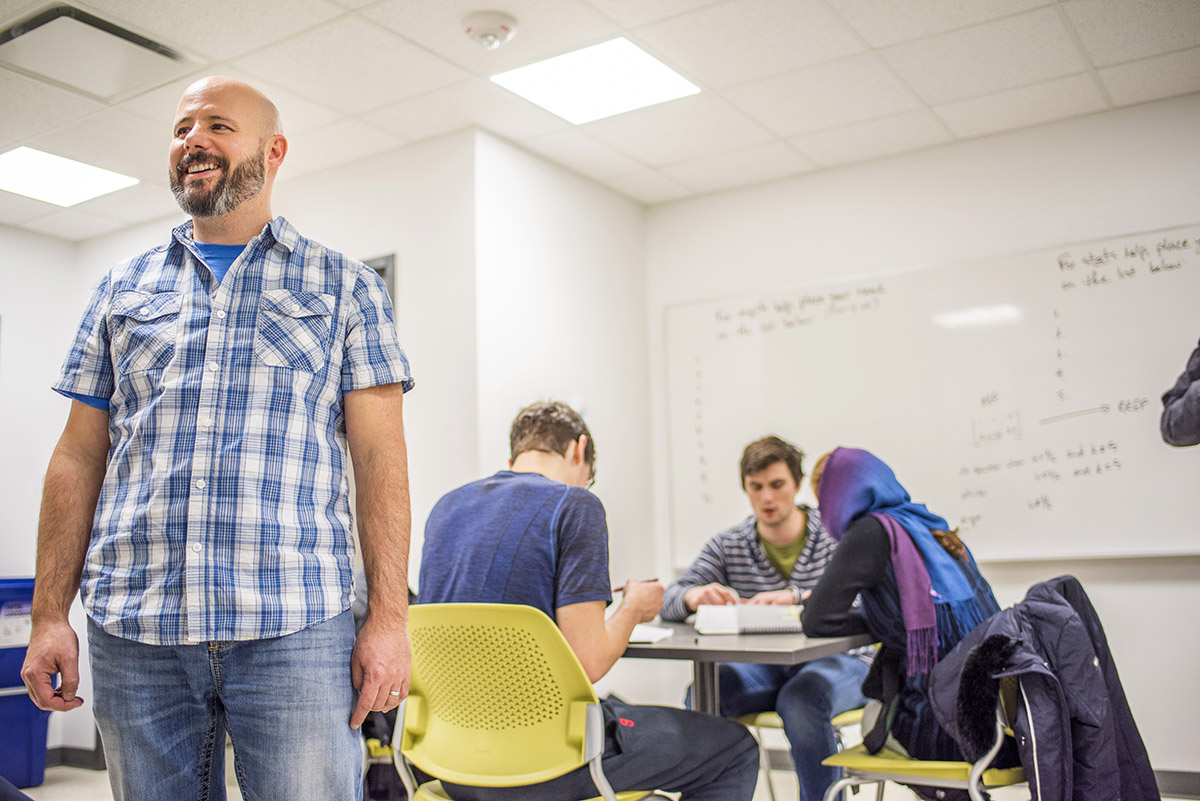
Sean Graves is an instructor and coordinator for the Decima Robinson Support Centre, where he supports undergraduate students taking courses in mathematical and statistics.
What (courses/disciplines/values) do you teach?
I have taught about seventeen different undergraduate math and stat courses at the U of A, and I see hundreds of undergraduate students each semester in the Decima Robinson Support Centre for Mathematical and Statistical Sciences. Although I love all math and stats, my favourite courses to teach are discrete math courses such as Graph Theory (Math 322) and Combinatorics (Math 421). Graph Theory is about dots and lines and the different ways the dots can be (or not be) connected by the lines, and Combinatorics is all about counting things. For example, how many six-letter strings can be made using letters from the words FACULTY OF SCIENCE? (Answer: there are 1,628,880 of them.)
Why should people learn about this?
Some famous problems in discrete mathematics are extremely difficult. In fact, one problem called the P vs NP Problem has a $1M bounty. If somebody solves it, they will be awarded this prize from the Clay Mathematics Institute and have their name immortalized in history.
What are some of its "real-world" applications?
One of the applications of this type of mathematics is the encryption of the information on our credit cards. It is because of the fact that the P vs NP Problem remains unsolved that we feel secure when buying items online and when using Internet banking.
What's the coolest thing about this subject area?
One aspect that I love about discrete mathematics is the number of problems which are simple to state but very difficult to solve. It doesn't take a lot of required background knowledge to get involved in a problem and some initial progress can usually be made by thinking in an organized and creative way.
What kinds of unique or innovative learning experiences do you offer your students? What's the value in offering students these opportunities?
An integral method of teaching that I strive to offer my students is to provide them with opportunities where they get to discover, through their own hard work, some of the wonders and beauty of mathematics. This can be difficult to do, but if properly orchestrated, having the students discover big ideas on their own can open up their minds in ways far more beneficial than simply explaining it to them in a classroom.
What was your favourite learning experience as an undergrad, and how do you incorporate that experience into teaching your students?
A memorable moment during my own undergraduate experience at the University of Alberta was when a friend and I were working on a graph theory problem that was assigned for homework. We had worked on the problem for many, many hours over the course of a week and we finally solved it. The feeling that I had was something that I will never forget, it felt as though I could do anything. It is at that moment that I came to realize that with persistence, and a focused, creative mind, anything can be accomplished. It is this feeling that I hope some of my students experience while taking my courses.
What is one thing that people would be surprised to know about you?
People may be interested to know that each summer I take a group of junior high students overseas to represent Canada at a mathematics competition. This year, the competition is in Lucknow, India. Go Team Canada!